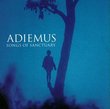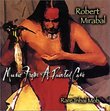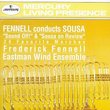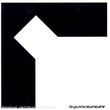| All Artists: Roman Kofman, Gidon Kremer, Vadim Sakharov, Munich Philharmonic Title: Valentin Silvestrov: Dedication (Symphony for Violin & Orchestra) / Post Scriptum (Sonata for Violin & Piano) - Gidon Kremer / Munich Philharmonic Members Wishing: 1 Total Copies: 0 Label: Elektra / Wea Release Date: 4/15/1997 Genres: Pop, Classical Styles: Chamber Music, Instruments, Strings, Symphonies Number of Discs: 1 SwapaCD Credits: 1 UPC: 745099920623 |
Search - Roman Kofman, Gidon Kremer, Vadim Sakharov :: Valentin Silvestrov: Dedication (Symphony for Violin & Orchestra) / Post Scriptum (Sonata for Violin & Piano) - Gidon Kremer / Munich Philharmonic
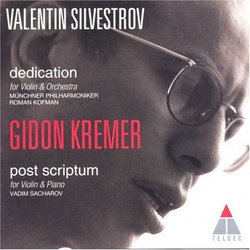 | Roman Kofman, Gidon Kremer, Vadim Sakharov Valentin Silvestrov: Dedication (Symphony for Violin & Orchestra) / Post Scriptum (Sonata for Violin & Piano) - Gidon Kremer / Munich Philharmonic Genres: Pop, Classical
Valentin Silvestrov (b. 1937) has only come into his own only since the late 1970s. Before then, his music tended to follow in the wake of Shostakovich and Schnittke. His true voice emerged with Symphony No. 5 (1980-81). A... more » |
Larger Image |
CD DetailsSynopsis
Amazon.com Valentin Silvestrov (b. 1937) has only come into his own only since the late 1970s. Before then, his music tended to follow in the wake of Shostakovich and Schnittke. His true voice emerged with Symphony No. 5 (1980-81). And it's here, in full measure, in Dedication: Symphony for Violin and Orchestra, a 1990-91 work for Gidon Kremer, the soloist here. Silvestrov, like Schnittke, is a polystylist; but unlike Schnittke, he keeps a constant tonal undercurrent beneath the more overt language of the orchestra which can be, at any time, tonal, atonal, serial, or anarchic. It's quite hypnotizing. Check this guy out. --Paul Cook Similarly Requested CDs
|
CD ReviewsAn intense new voice juniper | Houston, Texas USA | 12/03/2001 (5 out of 5 stars) "Though this composer was unknown to me, I know from previous experience that I can trust Gidon Kremer's taste in contemporary music. Indeed, we all owe him an enormous debt for his continued efforts to bring new music to light. The pieces by Silvestrov on this recording are quite extraordinary. They sound to my ear something like a cross between Mahler, Schnittke, and a bit of Part. Kremer describes them as an attempt to "awaken romanticism to a new life." I found the music beautiful, touching, and disturbing. A great recording. Check it out." Provocative works juniper | 03/29/2003 (5 out of 5 stars) "Silvestrov's music is deeply spiritual and to this listener passionate and philosophic. Like Gubaidulina, Kancheli, Ustvolskaya, Saariaho, and others, they eschew pretensions and, like some sort of mediums, transcend emotion and time with their compositions. Highly recommended" The most prominent violin works of Silvestrov's late output Christopher Culver | 10/01/2009 (3 out of 5 stars) "(This Amazon.com listing describes the original Teldec release of this recording, but note that it is now reissued in Warner's Apex line.)
Valentin Silvestrov's "Dedication" for violin and orchestra (1990-91) is very typical of the composer. After an opening dissonant chord, numerous melodies unfold, bearing a resemblance to the lines of the Romantic era but without any development towards a clear goal. The occasional Webern-like dissonant interval reminds us that we are listening to a product of the late 20th century, but the prevailing mood is a "postlude" (Silvestrov loves that word) of the era of common-practice tonality. Though this is ostensibly a violin concerto, Silvestrov's approach to the genre is reminiscent of Takemitsu's, and here Gidon Kremer's violin is just the most prominent strand in a rather symphonic texture, instead of some partner in dialogue with the orchestra. If you've heard the Symphony No. 5, for example, you know what to expect here. But I find Silvestrov's music quite compelling in spite of its fairly invariable mood from piece to piece. Even though his approach to form remains the same, he continues to conjure up myriad new melodies for each piece when he could probably get away with outright recycling of previous material. That requires considerable talent. "Post Scriptum" for violin and piano (1990) is in much the same vein, Unfortunately, the piece suffer froms excessive length. Sure, the first movement of "Post Scriptum" is lovely, but the second and third feel completely unnecessary, as if he's just milking it. And in any event, I rather prefer the ECM recording which has a nicer studio ambience." |

 Track Listings (10) - Disc #1
Track Listings (10) - Disc #1